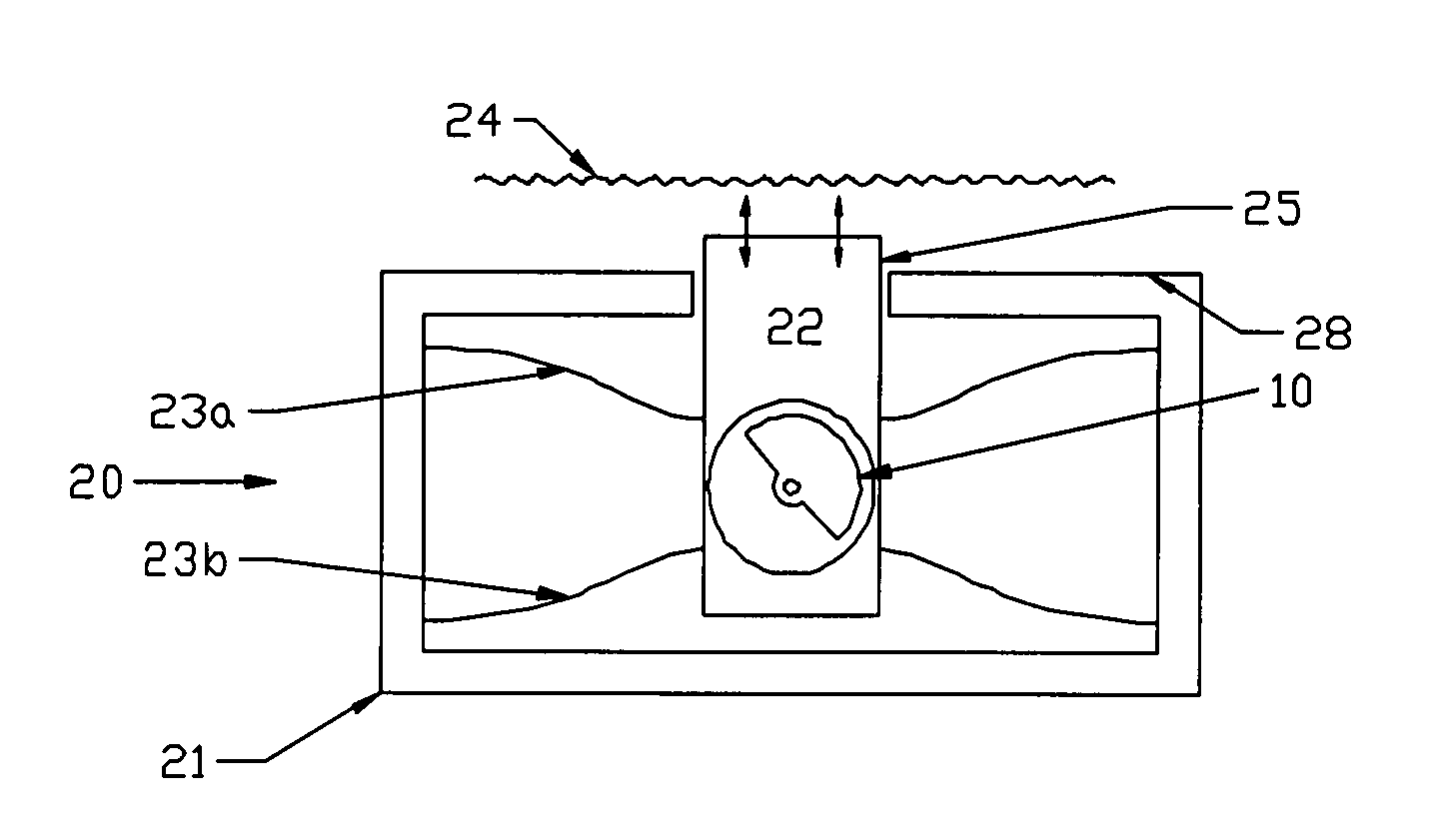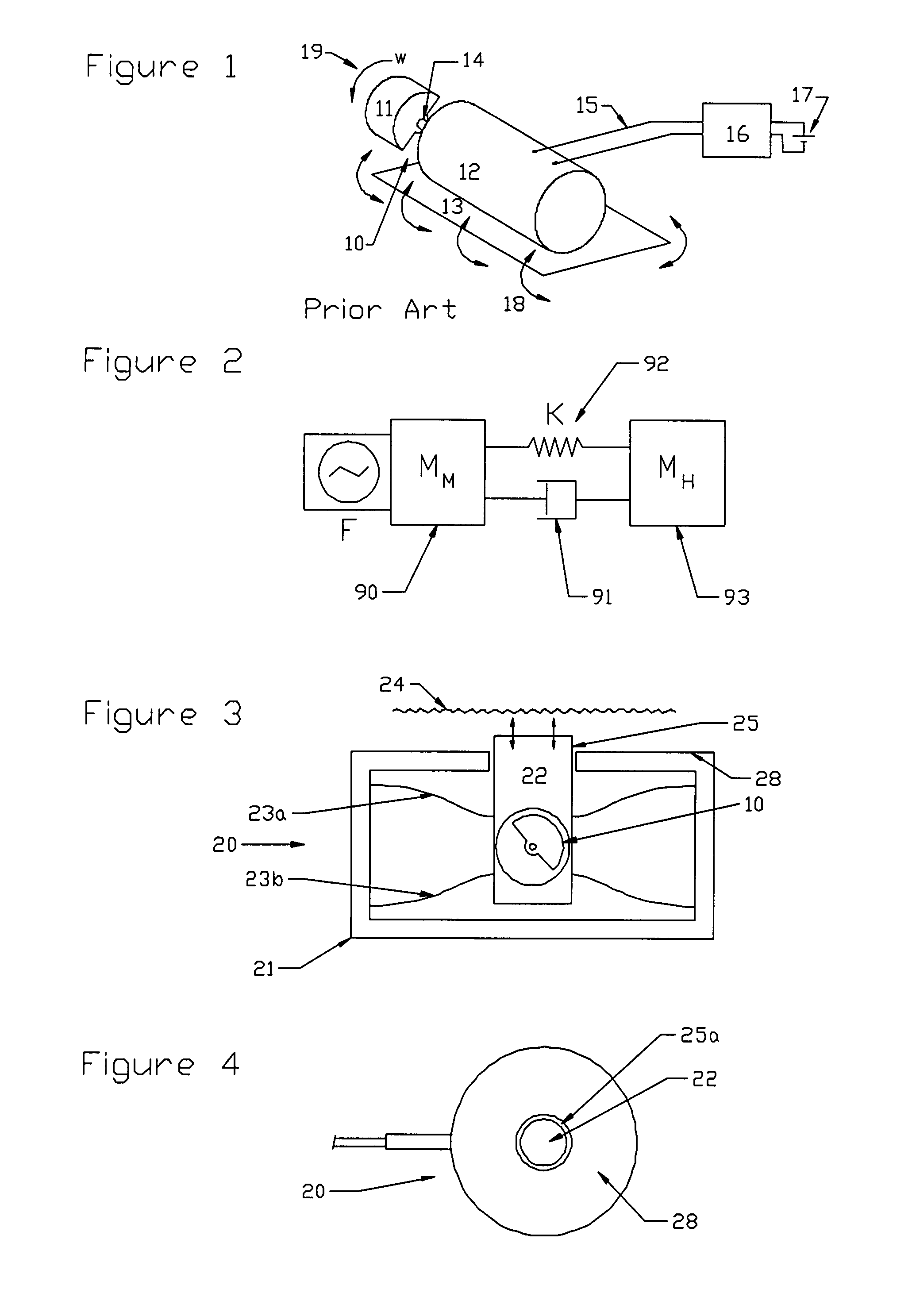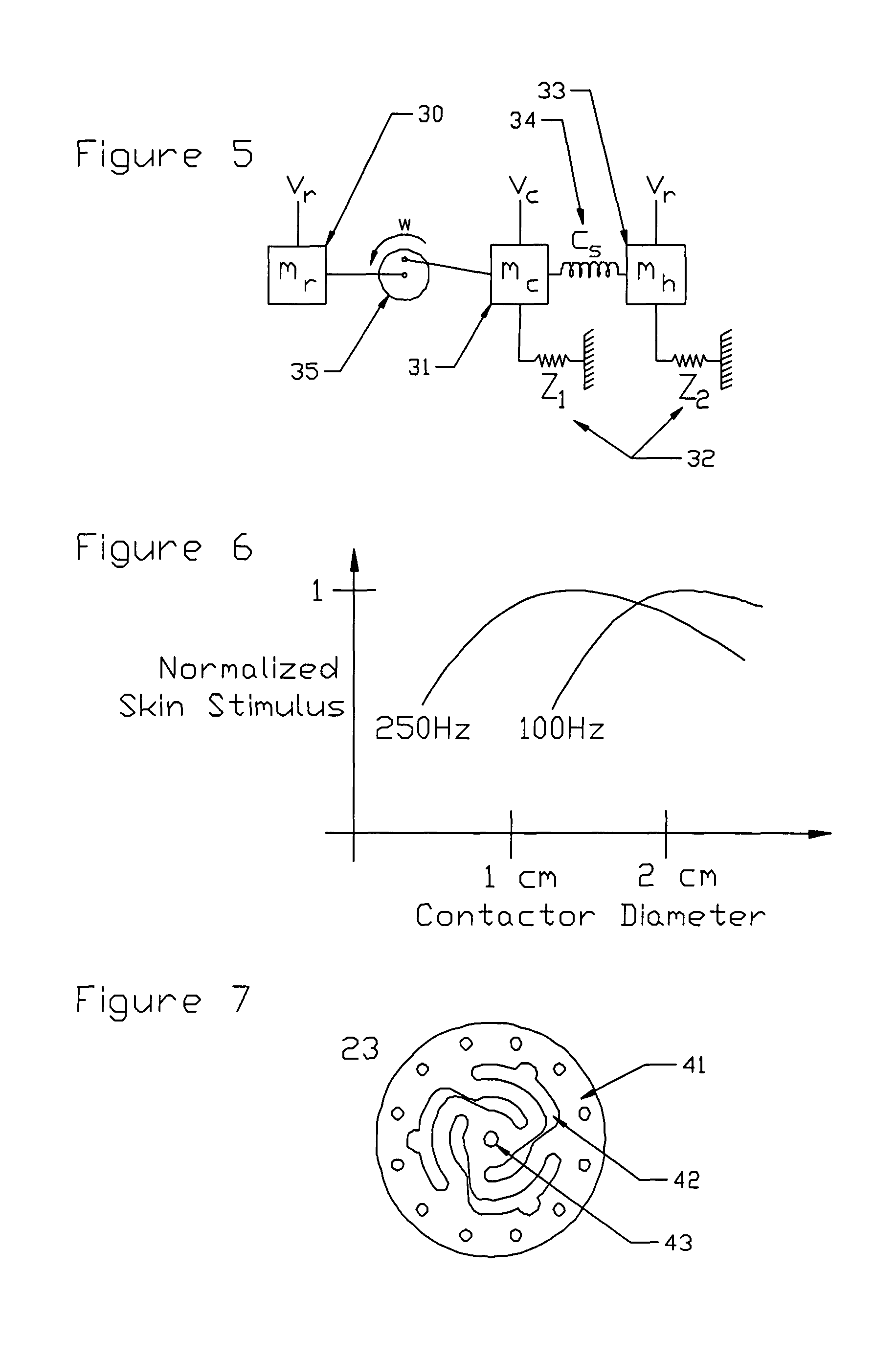Apparatus for generating a vibrational stimulus using a rotating mass motor
a technology of rotating mass and actuator, applied in the field of vibrational stimuli and transducers, can solve the problems of not being able to provide information to users through vibrational stimuli nor being able to be implemented as a wearable device, and the motion of the motor housing is three-dimensional and complex, and achieves low cost, low cost, and maximizes the effect of actuator displacemen
- Summary
- Abstract
- Description
- Claims
- Application Information
AI Technical Summary
Benefits of technology
Problems solved by technology
Method used
Image
Examples
Embodiment Construction
[0044]Referring to FIGS. 1 through 13, wherein like reference numerals refer to like components in the various views, there is illustrated therein a new and improved vibrotactile transducer apparatus, generally denominated 20 herein.
[0045]FIG. 1 illustrates the operation of prior art eccentric mass (EM) motor or pager motors 10. An eccentric mass 11 is mounted on a shaft 14 driven by a motor 12 that is mounted on a base 13. The motor is usually a DC motor although various synchronous, stepper, variable reluctance, ultrasonic and AC motors can be used. The motor 12 is connected to a controller unit 16 by wires 15. The controller unit is powered with a battery or power supply 17. The eccentric mass 11 is usually half-circular cylinder or similar shape where the center of mass is not the same as the center of rotation. The center of rotation is determined by the motor's shaft 14. The motor is designed to rotate the shaft 14 and off-center mass load 11 at various rotational velocities 1...
PUM
 Login to View More
Login to View More Abstract
Description
Claims
Application Information
 Login to View More
Login to View More - R&D
- Intellectual Property
- Life Sciences
- Materials
- Tech Scout
- Unparalleled Data Quality
- Higher Quality Content
- 60% Fewer Hallucinations
Browse by: Latest US Patents, China's latest patents, Technical Efficacy Thesaurus, Application Domain, Technology Topic, Popular Technical Reports.
© 2025 PatSnap. All rights reserved.Legal|Privacy policy|Modern Slavery Act Transparency Statement|Sitemap|About US| Contact US: help@patsnap.com



